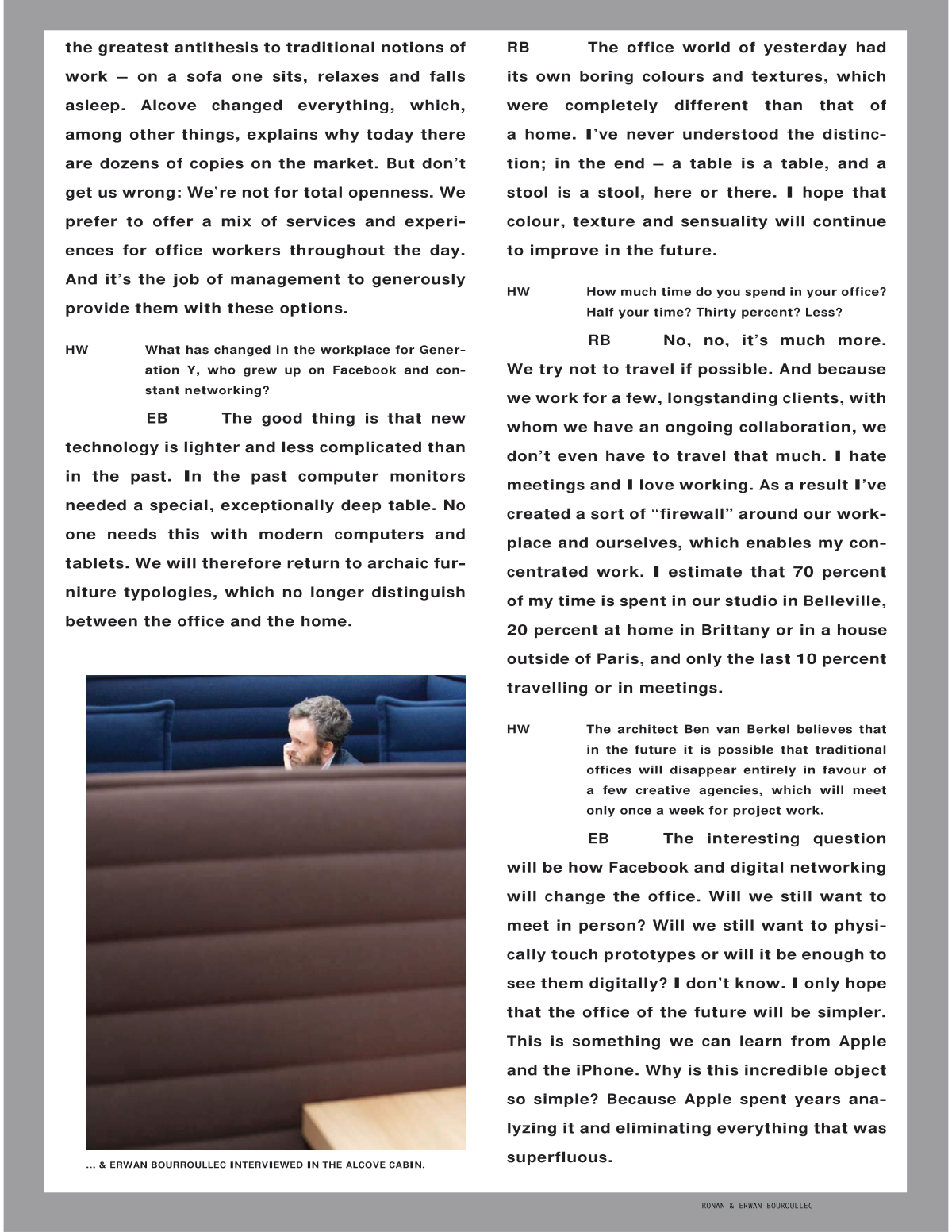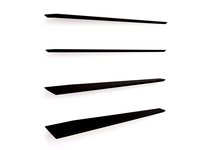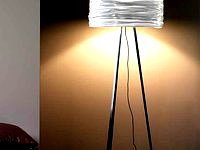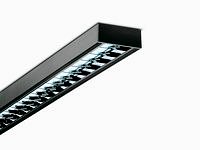the greatest antithesis to traditional notions of
work – on a sofa one sits, relaxes and falls
asleep. Alcove changed everything, which,
among other things, explains why today there
are dozens of copies on the market. But don’t
get us wrong: We’re not for total openness. We
prefer to offer a mix of services and experi-
ences for office workers throughout the day.
And it’s the job of management to generously
provide them with these options.
HW
What has changed in the workplace for Gener-
ation Y, who grew up on Facebook and con-
stant networking?
EB
The good thing is that new
technology is lighter and less complicated than
in the past. In the past computer monitors
needed a special, exceptionally deep table. No
one needs this with modern computers and
tablets. We will therefore return to archaic fur-
niture typologies, which no longer distinguish
between the office and the home.
RB
The office world of yesterday had
its own boring colours and textures, which
were completely different than that of
a home. I’ve never understood the distinc-
tion; in the end – a table is a table, and a
stool is a stool, here or there. I hope that
colour, texture and sensuality will continue
to improve in the future.
HW
How much time do you spend in your office?
Half your time? Thirty percent? Less?
RB
No, no, it’s much more.
We try not to travel if possible. And because
we work for a few, longstanding clients, with
whom we have an ongoing collaboration, we
don’t even have to travel that much. I hate
meetings and I love working. As a result I’ve
created a sort of “firewall” around our work-
place and ourselves, which enables my con-
centrated work. I estimate that 70 percent
of my time is spent in our studio in Belleville,
20 percent at home in Brittany or in a house
outside of Paris, and only the last 10 percent
travelling or in meetings.
HW
The architect Ben van Berkel believes that
in the future it is possible that traditional
offices will disappear entirely in favour of
a few creative agencies, which will meet
only once a week for project work.
EB
The interesting question
will be how Facebook and digital networking
will change the office. Will we still want to
meet in person? Will we still want to physi-
cally touch prototypes or will it be enough to
see them digitally? I don’t know. I only hope
that the office of the future will be simpler.
This is something we can learn from Apple
and the iPhone. Why is this incredible object
so simple? Because Apple spent years ana-
lyzing it and eliminating everything that was
superfluous.
... & ERWAN BOURROULLEC INTERVIEWED IN THE ALCOVE CABIN.
RONAN & ERWAN BOUROULLEC







